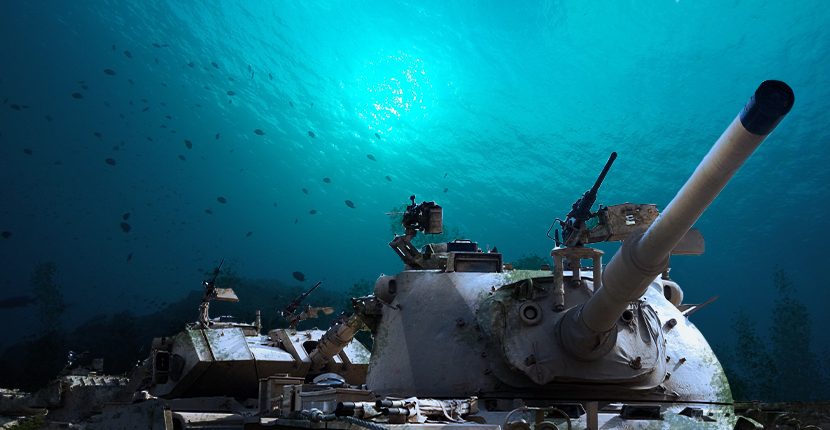Million Dollar Point has the vestiges of costly battle within its domain on the ocean floor. Being one of the largest contributors to the second world war effort, having to fight in two theaters with powerful enemies, the United States had to expand its wings to the far-off arenas in order to keep a tight grip on the situation. Keep in mind that the United States built a number of bases in the Pacific to help the military in their campaign against the defiant and aggressive Japan.

Not far from the coast of Espirito Santo, which is a small island in the Vanuatu Archipelago in the South-Western Pacific, the Pacific’s bed is littered with tons of Second World War relics dumped there by the US Military.
The site has now become a popular diving destination for enthusiasts and is appropriately dubbed the Million Dollar Point; purely because the value of the equipment dumped is believed to be in millions. The divers are reported to have seen large jeeps, six-wheeler trucks, gigantic bulldozers, forklifts, semi-trailers, tractors, large bound sheets of corrugated iron, sealed boxes of clothing and of course the crates of Coca-Cola.
British and French authorities refused to pay for the lot hence the United States deemed it appropriate to dump the goods instead of leaving them on its largest military base located to the west of Pearl Harbor. The base once was a thriving mini United States on the island, with 30 fully functional cinemas.
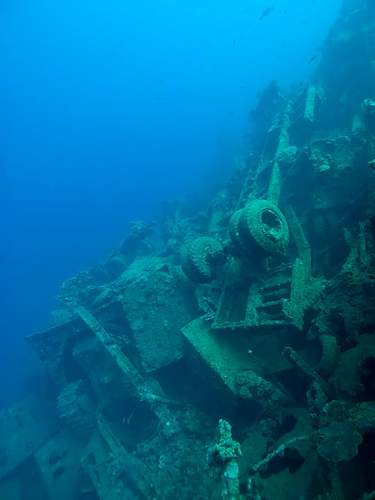
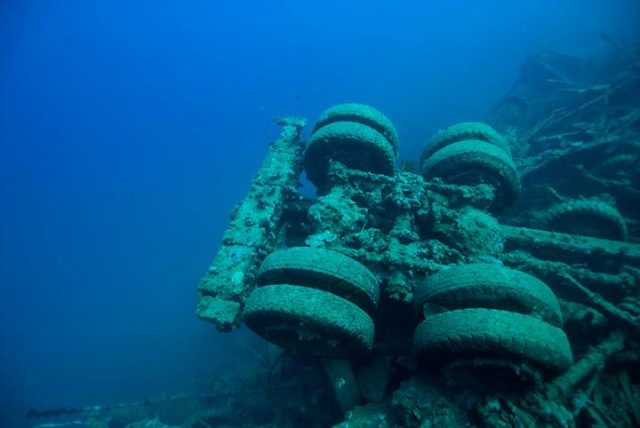
Thousands of tons of military gear found rusting at the bed was not thrown there by the Vanuatu people, nor by the Franco-British Condominium who were in control of the island from 1906 to the 1980; the personnel of the US military base built during the war dumped all that in the waters intentionally.
When American troops were leaving the Island after the base was ordered to be closed down, there was not enough space on the ships to carry each and every equipment from the base. The US military decided to offer the surplus to the local Franco-British government at a very reasonable price, which they refused.
The local government could see the amount of gear that US was unable to transport back and was secretly hoping that US Army would leave the equipment on the Island so that they could then have it for free; however, the US military had other plans.
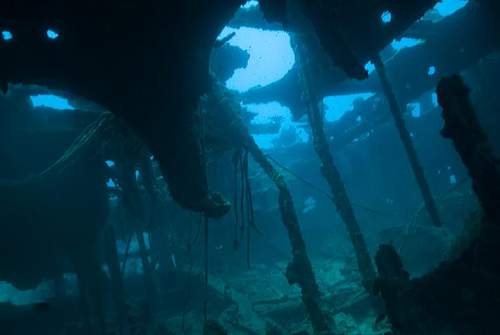
Thurston Clarke, a travel writer, wrote about the whole affair in great detail, saying that the ‘Seabees’ had in fact built a massive ramp that ran into the sea which was then used by the Americans almost every day to drive trucks, jeeps, bulldozers, ambulances, tractors into the channel never to be seen again. He added that seeing these marvels of engineering being literally driven into the waters brought some of the Seabees to tears.
The locals witnessing the bizarre act by the US military personnel of destructing the wealth that they would never see again was perceived as an act of madness
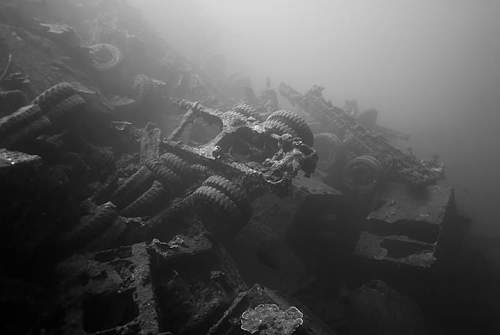
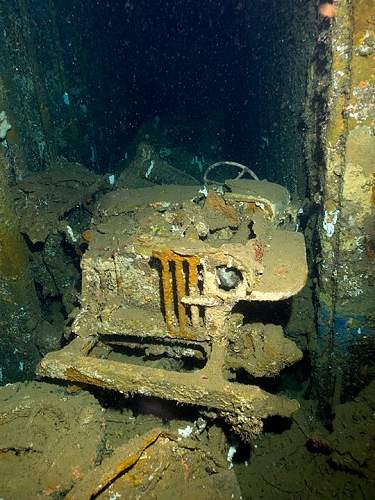
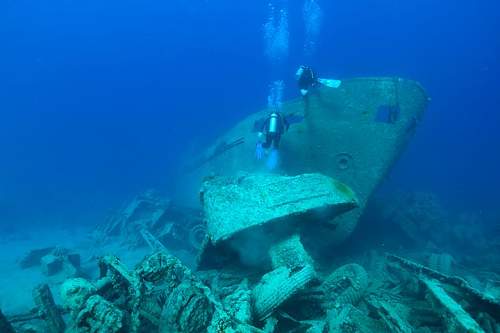
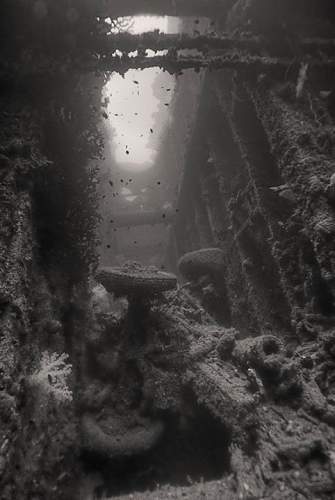
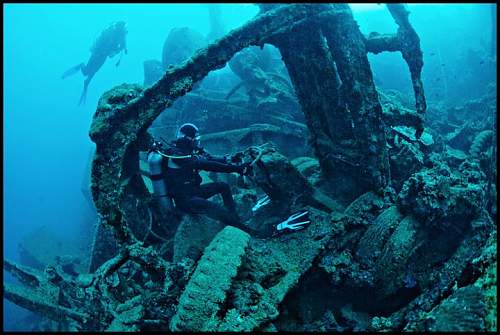
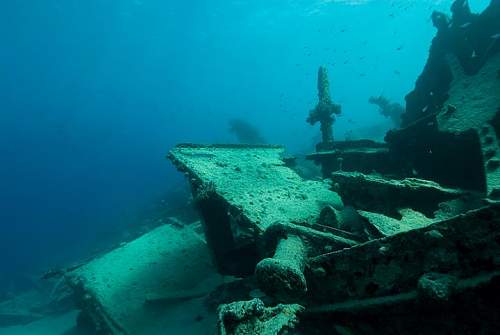
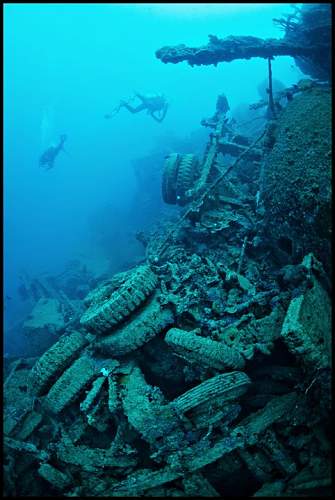
In the wake of the Japanese rise after Pearl Harbor, Buttons was one of the two bases that US military had established on the archipelago; the other base was Roses, which was built on another island not far from Buttons, called Efate.
The construction of the bases was fairly rapid, and the structures were erected and personnel moved in within weeks, and within days several islands became bustling American hubs to the surprise of the locals who had never see such scale of activity on their islands.
